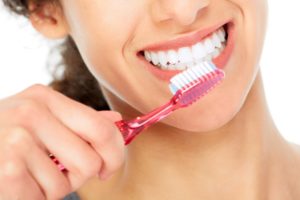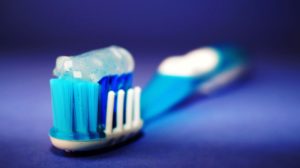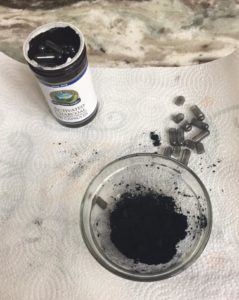Clay, Charcoal and Other Toothpaste Trends
 It is safe to say, from what is popular on Facebook, Instagram and Pinterest, that “all natural” products are trending. Many people deem commercially available toothpastes unsafe, despite the lack of scientific evidence supporting this claim. In fact, research studies show that any commercial toothpaste with the American Dental Association’s Seal of Approval is completely safe for daily, lifelong use.
It is safe to say, from what is popular on Facebook, Instagram and Pinterest, that “all natural” products are trending. Many people deem commercially available toothpastes unsafe, despite the lack of scientific evidence supporting this claim. In fact, research studies show that any commercial toothpaste with the American Dental Association’s Seal of Approval is completely safe for daily, lifelong use.
So why are other products, not approved by the ADA, gaining in popularity? We’re not sure. But it must be partially due to a desire to know and understand exactly what chemicals you are using on your teeth.
Important Generalizations
 There are a few very important points to keep in mind when you consider using a non-traditional, non-approved toothpaste.
There are a few very important points to keep in mind when you consider using a non-traditional, non-approved toothpaste.
- A toothpaste that lacks the ADA’s Seal of Approval has not been scientifically proved safe for daily, lifetime use. It could be safe. They just have not proved it yet.
- Many “all natural” products do not contain fluoride. Ironically, fluoride is a naturally occurring mineral in the ground. We like fluoride because, at the right levels, it strengthens your enamel and lowers your risk for cavities. At extremely high levels, fluoride can cause health problems. However, no approved toothpaste will contain anywhere near that high of a level.
- Some “all natural” formulations use abrasive particles to improve their plaque removal ability and teeth whitening effects. There is a threshold for what is safe when it comes to abrasivity. If it has not been tested, it has not been deemed safe.
- Some homemade or DIY toothpaste recipes involve the use of strong acids, and we STRONGLY ADVISE AGAINST these. Acids (like lemon juice, apple cider vinegar, or any other low pH liquid) can cause severe damage to tooth enamel.
Clay Toothpastes
The trend in clay toothpastes typically includes either white kaolin clay or bentonite clay as the active ingredient. Officially, there is not enough research supporting the safety of these products, so we cannot officially recommend them. However, the general properties of these clays make them probably okay for your teeth.
They tend to be low in abrasivity and high in pH, so they can neutralize acids in the mouth without removing vital tooth enamel. If you find one with the ADA Seal of Approval, go for it! If you can’t find one with the ADA Seal of Approval, look for one that has had independent lab testing to determine its level of abrasivity (if the manufacturer has paid for this testing, they will make sure to let you know!).
Charcoal Toothpastes
 Charcoal toothpastes are widely available now due to their increasing popularity. Crest has even come out with its own formulation of charcoal toothpaste (although it is notably lacking the ADA Seal of Approval that their other toothpaste formulations have). There is something fun about using a thick, black paste to clean your teeth.
Charcoal toothpastes are widely available now due to their increasing popularity. Crest has even come out with its own formulation of charcoal toothpaste (although it is notably lacking the ADA Seal of Approval that their other toothpaste formulations have). There is something fun about using a thick, black paste to clean your teeth.
Proponents of charcoal claim that it does two things. First, its absorptive properties cause it to absorb plaque and bacteria from the teeth. Second, it also absorbs stains from the teeth, giving it the ability to whiten teeth.. Unfortunately, both of these claims are unsupported by research. The American Dental Association published a literature review of all of the studies on charcoal in both toothpastes and powders. The conclusion that there is not enough research on the subject to deem these claims true or these toothpastes and powders safe for regular use.
As with the clay toothpastes discussed in the previous section, look for a Seal of Approval. If you can’t find that, look for a brand that has paid for independent lab testing to determine the RDA (relative dentin abrasivity). This will confirm its safety.
Keep in mind, though, that even if a charcoal toothpaste is declared safe, that does not mean it will effectively accomplish what it claims to accomplish. Safety and efficacy are not the same thing.
DIY Toothpastes
It is important to understand the properties of each ingredient you put into a DIY toothpaste. Some recommended recipes are actually safe, and others are extremely damaging to tooth enamel. The problem is that many of these recipes have you combining safe ingredients with unsafe ones.
Safe Ingredients
In general, things like coconut oil (or any other oil) and baking soda are safe. Baking soda has been studied and measured for abrasivity extensively, and it is safe! Coconut oil has been used for thousands of years in oil pulling with no negative side effects.
Unsafe Ingredients
Anything acidic is unsafe to put on your teeth. This includes lemon juice, apple cider vinegar, or any other type of fruit extract. These ingredients are bad for your teeth by just being in your mouth. Imagine how much more unsafe they are then you scrub them into the enamel with a toothbrush!
Ingredients that Need More Study
Some ingredients in DIY toothpaste recipes just have not been studied enough to determine their safety. We do not have enough information to state definitively either way. These include activated charcoal and the various types of clay.
More Questions about Which Toothpaste is Best for You?
Call Designer Smiles today to schedule a consultation with Dr. Ann and Dr. Lauren. They can answer any question you have about all natural toothpastes and their ingredients.
